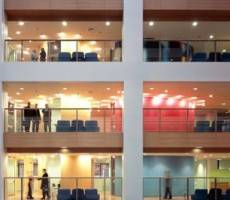March 30, 2015
Gamification remains a mystery to employees and unused by many firms
 Although it’s currently one of the most talked about workplace ideas, gamification remains a mystery to many workers and even HR professionals keen on the idea are probably not doing much about it. Those are two of the findings of a report from consultancy Penna based on interviews with 2,000 HR directors and employees. The study set out to explore how well senior HR professionals understood gamification, its uses and their perception of the barriers to adoption. Researchers also asked employees about their level of ‘everyday engagement’ with gamification and whether they recognise it as a concept. Over half (52 percent) of HR directors claim to be ‘massively interested’ in the idea although 44 percent also agreed that their organisation was ‘not at all interested’. Remarkably the survey also found that 89 percent of employees don’t even know what it is.
Although it’s currently one of the most talked about workplace ideas, gamification remains a mystery to many workers and even HR professionals keen on the idea are probably not doing much about it. Those are two of the findings of a report from consultancy Penna based on interviews with 2,000 HR directors and employees. The study set out to explore how well senior HR professionals understood gamification, its uses and their perception of the barriers to adoption. Researchers also asked employees about their level of ‘everyday engagement’ with gamification and whether they recognise it as a concept. Over half (52 percent) of HR directors claim to be ‘massively interested’ in the idea although 44 percent also agreed that their organisation was ‘not at all interested’. Remarkably the survey also found that 89 percent of employees don’t even know what it is.
























